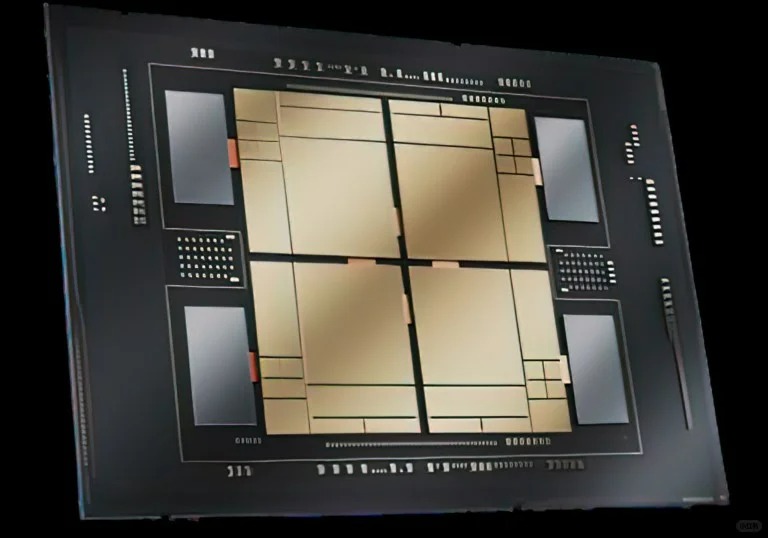With the rapid development of cloud computing and artificial intelligence technology, global cloud service providers (CSPs) are setting off a wave of technological innovation, the core of which is to independently develop ASIC (application-specific integrated circuit) chips. With this customized hardware solution, these companies seek to improve service efficiency, reduce operating costs, and establish or even enhance their leadership position in the market.
As a global leader in cloud computing, Amazon has made remarkable progress in the field of self-developed chips. It launched its Arm-based Graviton CPU and Inferentia AI chips, demonstrating its strong technical prowess while also demonstrating its strategic intent to reduce its reliance on traditional chip vendors. Graviton CPUs power Amazon's cloud services with their high performance and low power consumption, while Inferentia AI chips dramatically reduce the cost of AI inference by providing hundreds of TOPS of computing power.
According to Taiwanese media Business Times, generative AI has become a market boom, and CSP (cloud service provider) manufacturers are striving for more NVIDIA GPU supply on the one hand, and accelerating the progress of self-developed ASIC (special application chips) on the other hand, striving to reduce operating costs and shorten time to market.
At present, overseas giants Broadcom and Marvell have won CSP mass production orders for Ethernet switch chips, and Taiwanese factories have closely integrated with wafer foundries in the back-end design, becoming a winning force relied on by international manufacturers, including Worldchip, Creative, Faraday, etc., to resist NVIDIA's oligopoly.
In the past, the cost of chip filing was low, and most manufacturers designed their own ASICs to achieve product differentiation, but when it comes to advanced manufacturing processes, fixed costs such as mask design below 7nm and R&D expenses have soared, coupled with the time pressure of time to market, large manufacturers have begun to rely on third-party ASIC manufacturers to design.
According to the manufacturer, although the GPU of CSP customers still has to rely on NVIDIA to accelerate their own internal efficiency; However, in the future, general-purpose data centers will be gradually replaced by ASICs with clear usage requirements, and the development of NVIDIA's B-series will encounter bottlenecks, and the iteration speed of ASICs will gradually catch up.

Figure: Cloud service providers accelerate the development of their own ASIC chips for special applications
For example, Meta's Instagram and Facebook have to repeatedly process video and audio data, so MSVP (Meta Scalable Video Processor) has been developed as a computing power chip recommended by video and audio.
When selecting a suitable IC design service provider to manufacture an ASIC, it is necessary to consider a product portfolio that includes IP and a good design platform. Taiwan, China has a complete semiconductor IC service, good at wafer foundry, photomask, packaging and testing plants, so in the back-end manufacturing can help overseas manufacturers to strive for better wafer prices and provide good technical services, represented by Shixin, Creative, Faraday; Recently, the above-mentioned companies have also begun to move into the front end of the design.
At the same time, social media giant Meta is also actively deploying in the field of self-developed AI chips. It is reported that Meta's first AI chip MTIA is planned to come out in 2025, and the subsequent second-generation products will use the RISC-V architecture and be manufactured by TSMC's 5nm process. This strategy not only promotes Meta's expansion in the field of AI services, but also has the potential to profoundly affect the existing AI chip market landscape.
According to TrendForce's forecast, by 2024, the demand for high-end AI servers from the four major cloud service providers in North America (including Microsoft, Google, AWS, and Meta) will account for more than 60% of the total global demand. This trend shows the huge investment of these companies in the field of AI, and it also indicates that they will continue to dominate the market.
Independent research and development of ASIC chips has become an important force to promote technological innovation. By customizing the chip design, cloud service providers can better optimize the performance of cloud services and reduce energy consumption and costs. In addition, these self-developed chips provide higher security and privacy protection, which is especially critical for businesses and users who are concerned about data security.
In short, the ASIC chip race between cloud service providers is not only a technical competition, but also a battle for market leadership. With the continued investment of companies such as Amazon and Meta, the future cloud computing and AI market will become more diverse and competitive.






